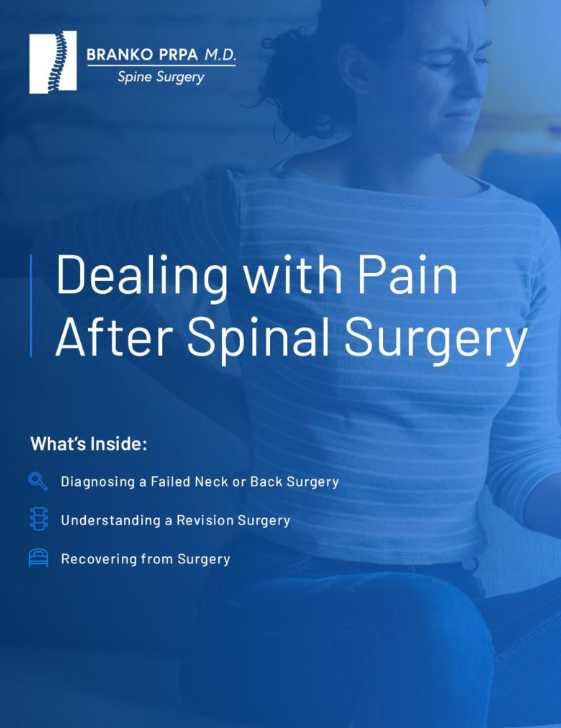Upper Back Pain Treatment

If you are experiencing pain in your upper back, do not panic – there are upper back pain treatment options available.
If your upper back pain is serious, call Milwaukee spine surgeon and back specialist Dr. Branko Prpa – (414) 939-5447 for a consultation. While most back pain is treatable with rest, changes in habit, or over the counter pain relievers, some back pain may require more specialized treatment.
Upper back pain is very common. In fact, about 80% of Americans will experience back pain at some point in their lives. Most of the time, it’s neither permanent nor serious: 95% of back aches go away within six weeks, with no specific treatment required.
How to Alleviate Upper Back Pain
If you are experiencing upper back pain, consider the following treatment tips from Milwaukee’s leading back specialist and spine surgeon Dr. Branko Prpa. Back pain can lower mobility, reduce interest in activities of daily living, and increase stress caused by constant pain. It’s important to address back pain to improve your quality of life. Here are a few things you can try to reduce your upper back pain.
Rest Your Back with a Good Night’s Sleep
Getting a good night’s sleep on a comfortable mattress is a great way to start reducing the effects of back pain. If you are experiencing temporary or chronic issues, try sleeping on your side on a low pillow to help prevent curvature of your spine. If you find your mattress is too soft, try sleeping on a hard surface, as that can help to relax your back and lower pain.
Relieve Your Back with Low Impact Exercise
Those experiencing back pain may not want to get up and move around, but in some cases a little low impact exercise will go a long way to relieving back pain symptoms. Walking is a great idea, as it improves blood flow and loosens tense muscles. You can also try stretching to lengthen and relax the muscles which can reduce or eliminate many types of back pain.
Help Your Back by Maintaining a Healthy Weight
We know it’s hard to try and maintain a healthy weight. After a certain age, when most people become susceptible to back pain, weight is harder and harder to keep off. However, It’s not healthy for your spine to carry all that extra weight around 24 hours a day. Diet and exercise can help you maintain a healthy weight and strengthen the muscles in your back that can weaken and cause back pain.
Give Your Back the Hot and Cold Treatment
One of the easiest things to try is applying hot and cold treatments to the back. Cold therapy (applied via an ice pack) works better for inflammation and helps to reduce swelling, while heat (via a hot water bottle or heating pad) is ideal for reducing cramping and muscle spasms.
Take Your Back for a Nice Swim
Swimming and aquatic therapy are helpful to take the weight off an aching back. This can include exercises done in warm, therapeutic pools — the buoyancy of the water helps deter strain on the joints — to encourage strengthening of muscles, gentle stretching, or floating to relax the muscles and release tension. Swimming is also an ideal way to strengthen the back muscles and help alleviate future issues with back pain.
Deliver Shock Therapy to Your Back
Transcutaneous electrical nerve stimulator (TENS) machines are small, battery-powered devices that transmit low-voltage electrical currents through electrodes that are attached to your skin. Considered very safe, TENS machines, according to one theory, work by scrambling the message of pain to the brain — literally blocking it. Another theory suggests that the electrical impulses cause endorphins to be released that override the sensation of pain. Many back pain patients have had success with TENS machines, though their effectiveness has not been clearly proven in controlled studies
Provide Your Back Temporary Relief
For short-term pain relief, over-the-counter NSAIDs (non-steroidal anti-inflammatory drugs) are sometimes suggested. The most common NSAIDs include aspirin, ibuprofen, and acetaminophen. While these can provide temporary relief, please keep in mind that they are only masking the underlying symptoms. Potential side effects of NSAIDs include stomach and liver problems, common in individuals who have used NSAIDs in excess.
Looking for more information and tips for back pain treatment?

